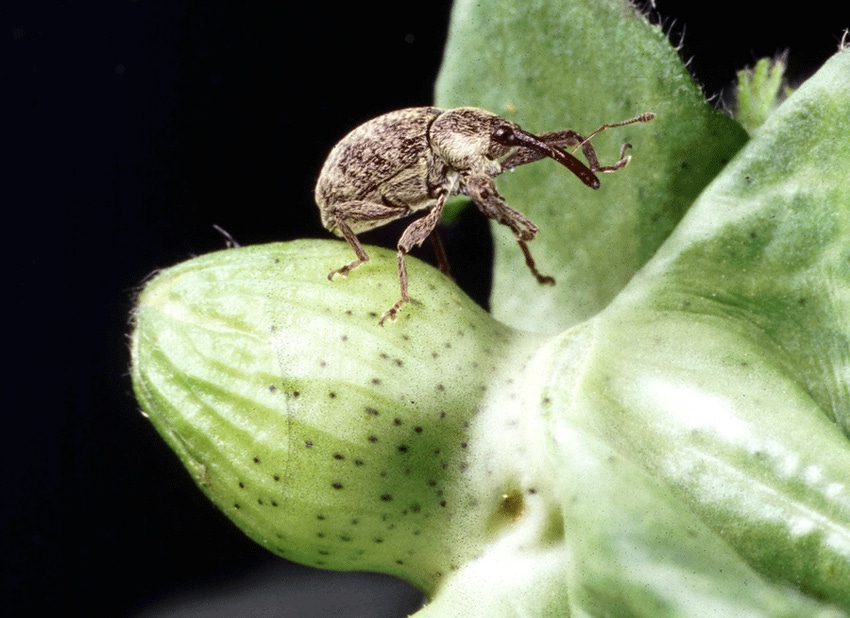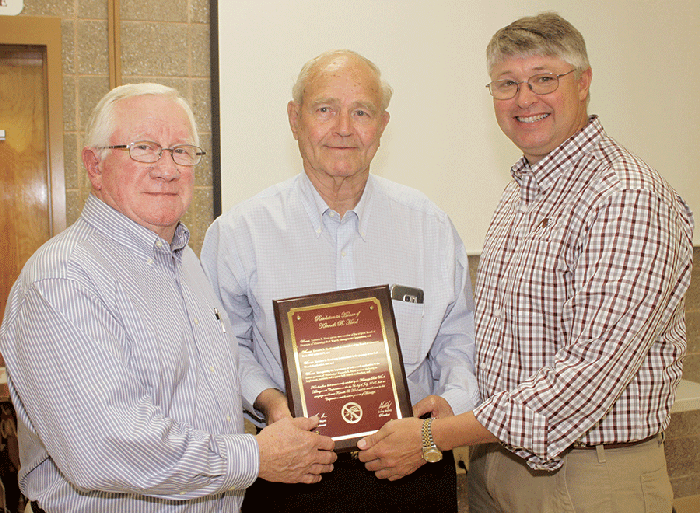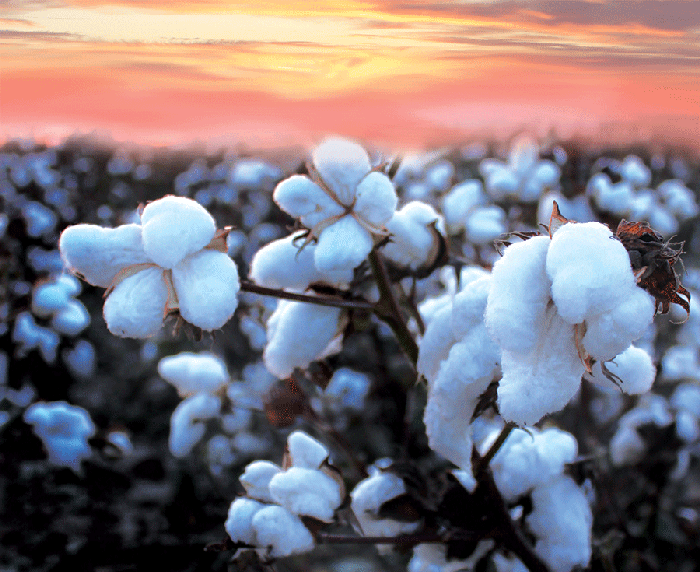
Boll weevil group honors Kenneth Hood
"All of us, working together, helped to eradicate the enormously destructive pest that cost U.S cotton farmers billions of dollars over many decades.” says Mississippian Kenneth Hood, who was instrumental in getting the eradication effort off the ground more than 25 years ago.

Kenneth Hood, Perthshire, Miss., producer/ginner, has been honored by the Mississippi Boll Weevil Management Corporation for his “more than 25 years of service to the planning, implementation, and accomplishment of boll weevil eradication in Mississippi and other cotton belt states.”
“He has been involved with this effort from the time when there was only a vision of eradicating the boll weevil, all the way through the years of hard work to the reality of eradication that we’ve had for the past nine years,” said Farrell Boyd, program manager, who recognized Hood’s accomplishments at the annual meeting of the organization. “I think I can say he is boll weevil eradication’s favorite son.”

Mississippi producer/ginner Kenneth Hood was honored by the Mississippi Boll Weevil Management Corporation for his efforts in developing the program and helping to make eradication of the pest a reality. Making the presentation were Farrell Boyd, left, program manager, and Coley Bailey, Jr., president.
From the time a technical advisory committee was appointed in the late 1980s to begin investigating the potential for an eradication program, until the present when the weevil has almost been eliminated across the U.S. cotton belt, “he has been strongly involved in the effort,” Boyd says. “He has served as board member, president, and chairman. There’s no way I could list all his contributions and accomplishments, the dedication and devotion he has given to this effort. He invested countless hours and miles in meeting with our Mississippi legislature, officials in Washington, and producers in our state and elsewhere, assisting in getting the legislation formulated and passed, getting financing arranged, and getting the program implemented.
“None of it has been easy. Not everyone was in favor of the program, and he took his share of criticism. But as farmers today can grow cotton without the boll weevil’s devastation, it’s a pleasure to honor him for his tireless service and dedication in behalf of American cotton producers.”
WIDESPREAD SUPPORT
“I appreciate all the accolades,” Hood said in his acceptance remarks, “but this program is much deeper and many more than one person, or even a few persons. There are a lot of names over the years who have contributed to getting this program off the ground and helping it be a success, and they all are due our thanks.
“First and foremost, thanks are due the cotton farmers of Mississippi, who have supported the program and paid for it with per-acre assessments. And yes, I have a few verbal bullet holes in me, but eventually we all worked it out to insure the program’s success.”

“First and foremost, thanks are due the cotton farmers of Mississippi, who have supported the program and paid for it with per-acre assessments," says producer/ginner Kenneth Hood, who was recently honored for his leadership in the eradication effort.
Among the many to be remembered, Hood says, are the members of the original committee; members in addition to Hood were Bobby Miller, Greenwood; David Bennett, Sr., Ashland; Bernard King, Pelahatchie; Frank Mitchener, Sumner; and Margaret McKee, Friars Point. “Their decision that, yes, we needed a boll weevil eradication program set things in motion,” he says, “and Mississippi Farm Bureau and Delta Council paid for Bobby Miller, David Bennett, Bernard King to go with me to Washington to meet with the Secretary of Agriculture and our senators and representatives to lobby for the program.
“Don Waller, who was president of Mississippi Farm Bureau Federation, and later David Waide, were extremely supportive, as was the Delta Council; the National Cotton Council, which helped us get the program started off right; and Mississippi State University Extension Service — we couldn’t have done it without them. Extension writer Linda Brezeale wrote extensively about the program and was so helpful in keeping farmers informed.
EVERYONE PULLED TOGETHER
“The late David Bennett, Sr., Benton County cotton grower, did a lot for the program, as did the late George Mullendore, Mississippi’s Extension cotton specialist, and Jeannine Smith, who’s been with the program from day one and now serves as executive director.”
Delta Farm Press was “very instrumental in helping us to publicize our efforts and get information to farmers,” Hood says. “They told the good, they told the bad, they told the ugly — but that helped everyone to be better informed, and we all pulled together, hills and Delta, and worked through all the details that led to success.
“We also owe a debt of gratitude to our congressional leaders, particularly Sen. Thad Cochran for the money he was able to allocate to the program for Mississippi and the entire cotton belt. We met with him during our original trip to Washington, and Dr. Mark Keenum, now president of Mississippi State University, who helped us not only with weevil eradication but in making sure funding was included in the farm bill.
“Now, we’ve got money in the bank, and we have a very low per acre assessment rate.So, it was all of us, working together, who helped to eradicate the enormously destructive pest that cost U.S cotton farmers billions of dollars over many decades.”
About the Author(s)
You May Also Like



